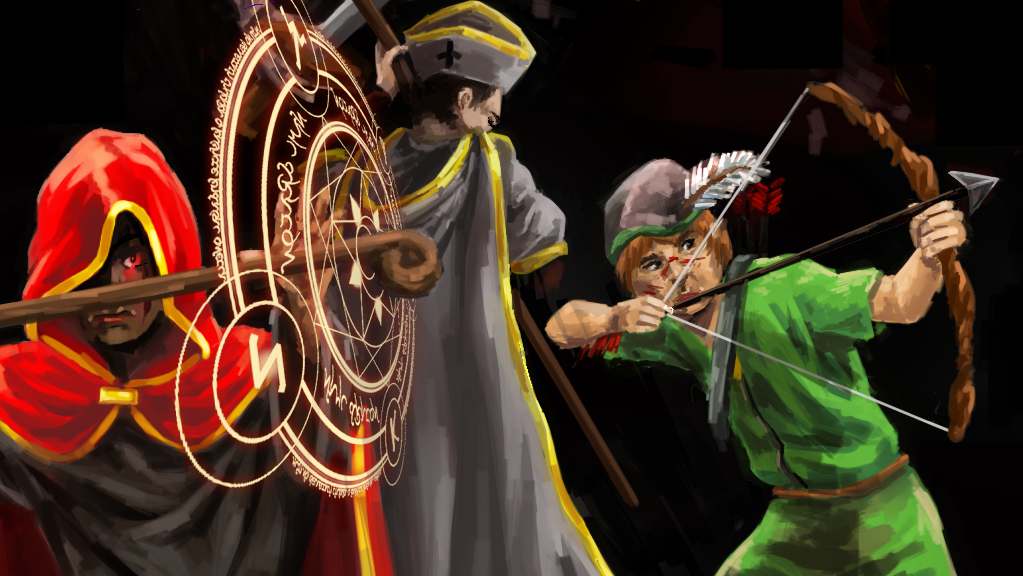How do you handle problems? We all react to stressful moments in our own ways, however not all of them may be appropriate when working in a videogame development team. Inevitably, things will go wrong and your team will want to be prepared to pick up the pieces. Understanding the common pitfalls of team communication as well as ways of overcoming them will supply both you and your team with the skills needed to get through the roughest of patches and ship a successful game!
Your Vision Will Not Be Realized
When working in a team, the game you see in your mind will never be the one that is produced, no matter how simple it may seem. Each member of your team has their own unique vision of what your game is going to be. While most of the time this vision is reconciled, when things go wrong and that vision needs to be shifted not all members might agree on the new direction. In this situation it can become easy to feel as if your direction is the true vision of the game, and that other members on your team are undermining your ideas and contributions.
I’ve been in that boat myself and have learned thinking in that manner only creates more issues. If team members do not agree on how to implement a fix or how to change the format of the game, then no work can get done. It will pull apart the team and exacerbate what might be a relatively minor problem. As a developer you must understand the game will change and that you must work alongside your team in order to get things done.
Sometimes You Have To Say “No.”
On the other hand, it is also important to recognize issues and address them. If someone is being stubborn or not putting out enough of an effort, something has to be said. When working in a group, it can be hard to directly call someone out or raise a legitimate concern. The best teams are friendly and foster creativity, so it can seem counter-intuitive to introduce negativity.
On the team in which I was being stubborn about my vision, I initially kept pushing because my teammates let me. They gave me half-answers and passive-aggressive vagueries, which only fueled my belief that I was right. Eventually a teammate had to step-in and explain why the group could not afford to implement my ideas. They weren’t rude, but they were firm and made their stance clear. It was enough to make me realize that I wasn’t getting what I wanted and that my behaviour was detrimental to our production.
Time Is Critical To Survival
Perhaps one of the most important points however, is that when an issue does crop up, it must be addressed immediately. The longer you spend making demands or letting someone else hold up development, the more time goes down the drain. If your group needs to completely re-work an element of the game, stop and figure out the new direction before continuing. If you wait, any potential further work made before the changes may be lost.
It is easy to become too complacent, focusing on the main task and letting small details float on by. These small problems might grow into big ones, and if they do they have the potential to seriously halt development. When working under a schedule, it is best to put a stop to problems earlier rather than later, lest you’re not left with enough time to do so.
Conclusion
While I haven’t covered every possible group dynamic and potential shortcoming out there, these three are the ones that I’ve run into the most. By learning the hard way, I’ve been able to recognize these patterns and take steps to resolve them within groups. If you apply these basic principles to your own team dynamic, then hopefully you can avoid some of the same mistakes.
Please be sure to share this article if you enjoyed the read!
————————————————————————————————————
Looking to get your indie game viral?
Click Here to find out how Black Shell Media can help!
————————————————————————————————————


